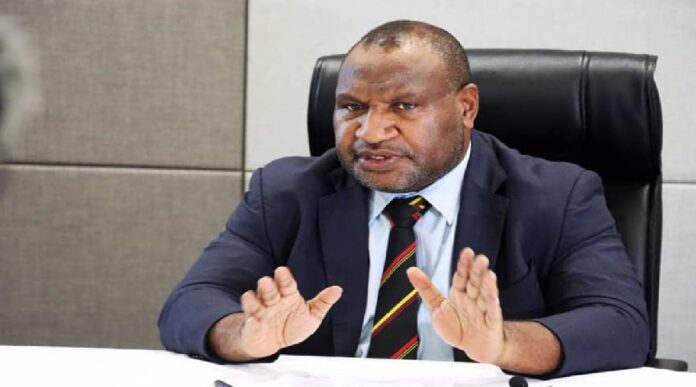PRIME Minister James Marape says the Government will prosecute all those responsible for almost K1 billion losses to Papua New Guinea, including former Prime Minister Peter O’Neill.
He said this after the session of Parliament on Wednesday last week during which he presented the report on the commission of inquiry (COI) into the controversial AUD$1.3 billion (K3.3 billion) UBS loan deal of 2014 and related transactions.
It drew to a close a significant effort on the part of the Marape Government to highlight these issues, and ensure that perpetrators took responsibility, the PM said.
In 2014, the O’Neill-led government obtained the AUD$1.3 billion loan from the UBS to acquire a 10.1 per cent share interest in Oil Search Ltd.
This decision came about after the International Petroleum Investment Company (IPIC) retained the State’s share in Oil Search Ltd, after loaning an amount of AUD$1.681 billion (K4.36 billion) to the State in 2009 to finance the State’s equity in the PNG LNG Project.
However, a startling chain of events resulted in the loss of the same shares, significant financial losses to the State of in excess of AUD 340 million (K902 million), lost opportunities including establishment of the Sovereign Wealth Fund as intended, and a significant diversion of revenues from the PNG LNG project once the exports of LNG began in 2014.
Marape told Parliament the COI had made some stunning conclusions:
• The UBS loan had no satisfactory justification or rationale. It declared that there was no strategic interest in obtaining new Oil Search shares in 2014;
• The failure to follow proper processes, coupled with the speed with which complex documentation was produced, meant no one within the public service understood the overcharging of the State by UBS and the risks inherent in the UBS Loans;
• In addition to its sizable fee of AUD 28.4 million, UBS also benefitted from the refinancing of the Collar Loan in December 2014 and February 2016, and from the ultimate sale of the shares in September 2017. Its total overcharging amounts to AUD175 million (K464 million), and should be made to repay the amounts;
• Lawyers retained by the State did not advise the State properly on the potential conflict of interests and how to manage them;
• Officer responsible for the NEC policy submission, and submission failed to set out the downside to the proposal and the false statement that the then Treasurer Hon. Don Pole agreed to the submission contents; and
• O’Neill knew the submission was complex and lengthy but did not provide the NEC advance notice or the real opportunity to debate the submission during the meeting. The meeting lasted less than an hour. These are the vital process of democracy and good governance.
“The commission makes specific recommendations on the question of who was responsible and what remedies should be sought against them,” Marape said.
“It suffices, for now, to say that those recommendations are specific and the remedies are also specific.
“Needless to say, the former prime minister has been recommended for prosecution and to be referred to the Independent Commission Against Corruption (ICAC).
The report also called for specific public service leaders to be referred to the leadership tribunal.
“UBS has been named for overcharging and providing a misleading and deceptive product and should be asked to repay the amounts overcharged, and criminal sanctions should be pursued both in Papua New Guinea and Australia.
Norton Rose Fulbright Australia’s (NRFA) failure to give proper advice to the State should be further examined and the firm banned from doing work for the State and the SOE for five years, and former and current UBS and NRFA personnel have been named to be banned from providing services to the State or any SOEs for five years.”
Marape said the report of the COI also contained a number of recommendations, particularly on the following:
• Amendments to the Commission of Inquiry Act, to improve and enhance its powers;
• Improvements to our public service system in keeping proper records and documentation of government businesses;
• Prohibition of certain foreign individuals and entities, from doing any work for the State, by reason of their conduct;
• Amendments to the Leadership Code, to enable retrospective accountability of persons under the Leadership Code;
• Investigations against UBS and the law firm of Norton Rose Fulbright, on their conduct in respect of their duty of care to the State and the management of the conflict of interest;
• Amendments to relevant legislations covering overseas commercial loans by the Government, to ensure prior parliamentary approval above a defined level; and
• Implementation of the sovereign wealth fund and its relevant functions and features.


